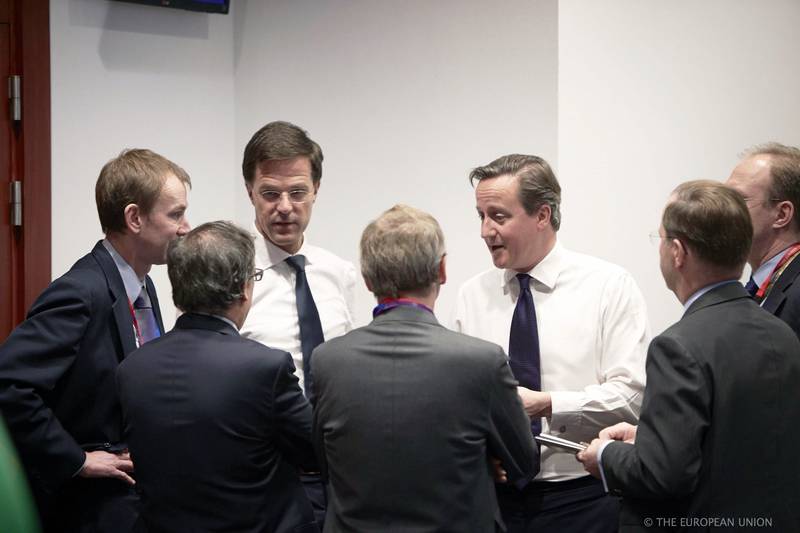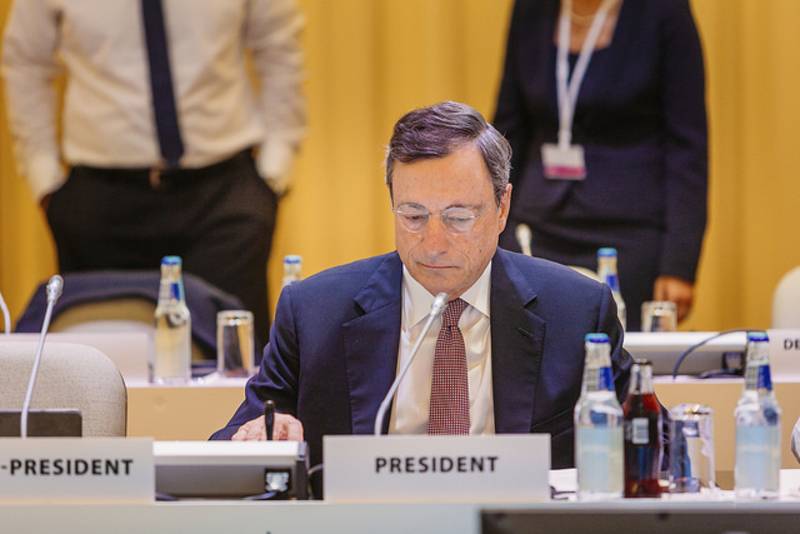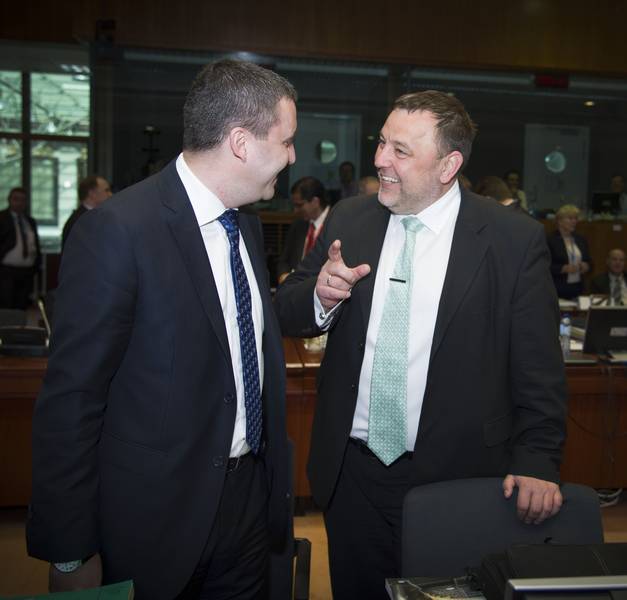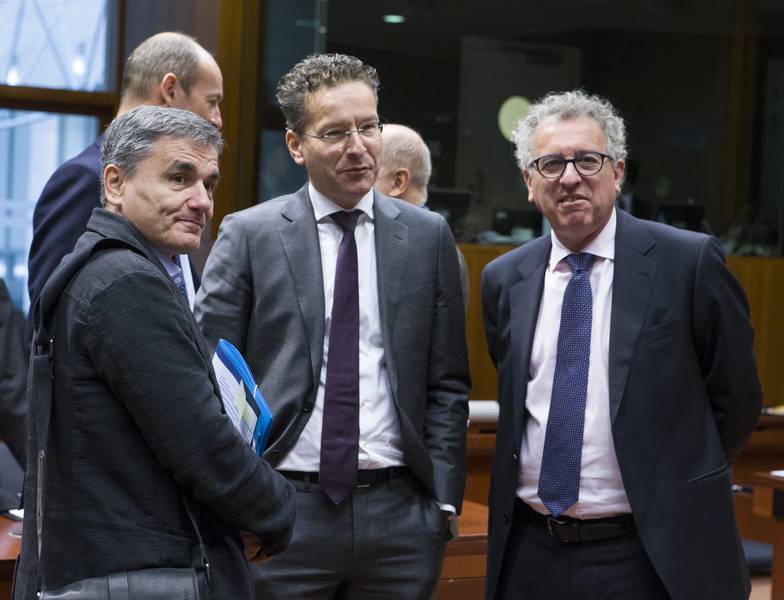Jose Manuel Barroso: Implementation is key
Adelina Marini, September 2, 2011
 The period of collecting ideas has ended, now it's time for action. This was in all the message of European Commission President Jose Manuel Barroso, conveyed in a video address on August 31 on the occasion of the opening of the new political season. In his short address Mr Barroso outlined the main priorities the European Commission will deal with and the main challenges Europe is facing. According to him, the already planned measures to tackle the crisis will have a great impact but their quick and efficient implementation is important. "Implementation is key", he stressed.
The period of collecting ideas has ended, now it's time for action. This was in all the message of European Commission President Jose Manuel Barroso, conveyed in a video address on August 31 on the occasion of the opening of the new political season. In his short address Mr Barroso outlined the main priorities the European Commission will deal with and the main challenges Europe is facing. According to him, the already planned measures to tackle the crisis will have a great impact but their quick and efficient implementation is important. "Implementation is key", he stressed.
The most important measure is the adoption of the economic governance package which has been frozen in the negotiations procedure between the European Parliament and the Council. Barroso, only this week, called for a second time on the two institutions to reach an agreement as soon as possible. Secondly he pointed out as extremely important the decisions of the eurozone summit of July 21 to be implemented, especially those related to the reform of the rescue fund of the monetary union - the European Financial Stability Facility (EFSF).
A third of the priorities, outlined by European Commission chief, is the second programme for Greece which the private sector is expected to take a share in. Currently, Barroso added, the Commission together with the ECB and the IMF was reviewing the implementation of the current programme for financial assistance. Barroso recalled that it was of utmost importance Greece to implement the agreed reforms so that it could further focus on boosting investments in Greece through better absorption of EU funds - for the purpose the Commission approved a special measure, reducing the national co-financing of projects that contribute to economic growth and jobs creation.
The fourth priority of the forthcoming fall again is enhancing financial regulation - an issue that has been present in the European agenda ever since the beginning of the Great Crisis of 2008. Barroso announced that in the coming months the Commission would make additional proposals aimed at completing the reform in the financial sector, among which improving the oversight of markets in instruments such as derivatives; tightening rules on insider trading and market manipulation; and presenting a framework for the resolution of failing banks.
The European Commission president responded indirectly to IMF's chief Ms Christine Lagarde's call for a recapitalisation of European banks, by saying that banks in Europe were much better than they were six months before. Besides, additional measures were taken after the stress tests in July.
On the eve of the G20 summit in Cannes in the beginning of November, the Commission will come up with a long-awaited proposal for the introduction of a European financial transactions tax so that the issue can be profoundly discussed at G20 level. In order to prepare the grounds for such a debate Barroso is planning a trip in some of the G20 countries, starting with Australia. Then he will stop in New Zealand and Singapore.
The EU and the US in general accept the introduction of such a tax but only if it is introduced by all major economies that have solid financial markets, in order to avoid ebbing from the countries that have introduced it. For the European Union this tax is of utmost significance as the Commission envisages to use it to finance the common budget because of the impossibility the budget to be increased for the sake of national budgets, a large part of which are in austerity regimes.
Barroso ended his video address by saying that the challenges that laid ahead were indeed huge. He repeated what he said on Tuesday on the occasion of the inauguration of a 'Solidarnosc Esplanade 1980' and a 'Simone Veil agora' by saying that the interdependence within the EU was too big. However, it is not a weakness but a simple fact.
Nonetheless, a government is needed for the eurozone
Against the backdrop of these priorities that will dominate the European agenda until the end of the year, the gushing of ideas about how the debt crisis of the euro area can be solved continues. Thomas I. Palley, an associate on the economic growth programme at the New America Foundation, proposes a very interesting idea published in The Financial Times. His idea is not new by itself but is much more specific and that is - the creation of a European ministry of finance or, as he puts it, a European Public Finance Authority (EPFA). The idea for the creation of a European ministry of finance has been launched by ECB President Jean-Claude Trichet in the beginning of June in Germany and has been approved by the temporary crisis committee of the European Parliament.
The institution Thomas Pally proposes should be managed by the euro area member states as the distribution of votes in it is the interesting part of the proposal - on a per capita basis. Mr Palley does not elaborate what precisely he means by choosing this indicator, but probably this is about each country to represent one vote.
That institution, the author goes on, will issue bonds that the ECB will buy and sell through standard open market operations. These bonds will be guaranteed collectively by the members and will cover EPFA’s interest on a per capita basis. The EPFA annually issuing new bonds to help finance government budget deficits. The amount issued would be democratically decided by EPFA’s governing council, presumably acting on instructions from national governments, the author writes. New issue proceeds would be deposited with governments to spend as they wished.
According to Thomas Palley, his proposal would respond to everyone's wishes, as the EPFA will never spend money - all spending would be determined by governments. Besides, this would allow the central bank to assist budget financing just like what the national central banks do. And third, he says, the euro area will have a democratic financial union which will not be a fiscal transfer union, of which everyone is so scared.
The reform of EU's economic governance, of which euinside wrote in details, is not focused on building new institutions, excluding the temporary rescue fund of the euro area and the European Stability Mechanism, that is the permanent fund which will start operations in mid-2013. What it is focused on with the proposals for changes is a reform of the Stability and Growth Pact, and also expanding the excessive deficit procedure to include excessive debt. Attention will be paid also to excessive imbalances, as tighter sanctions are envisaged too.
Currently the Six Pack is blocked by disputes between the Council and the European Parliament over the proposed reversed qualified majority voting rule. This means that when necessary, the Commission will enforce sanctions that can be lifted only if qualified majority for this is ensured in the Council. On EU level, more and more actively is being discussed the issue of introducing eurobonds. But there is still no consent on the issue.
 Klaus Regling | © Council of the EU
Klaus Regling | © Council of the EU Mario Centeno | © Council of the EU
Mario Centeno | © Council of the EU Mario Centeno | © Council of the EU
Mario Centeno | © Council of the EU Kristalina Georgieva | © Council of the EU
Kristalina Georgieva | © Council of the EU Mark Rutte, David Cameron | © Council of the EU
Mark Rutte, David Cameron | © Council of the EU | © European Parliament
| © European Parliament Mario Draghi | © ECB
Mario Draghi | © ECB Vladislav Goranov, Sven Sester | © Council of the EU
Vladislav Goranov, Sven Sester | © Council of the EU Tsakalotos, Djisselbloem, Gramegna | © Council of the EU
Tsakalotos, Djisselbloem, Gramegna | © Council of the EU